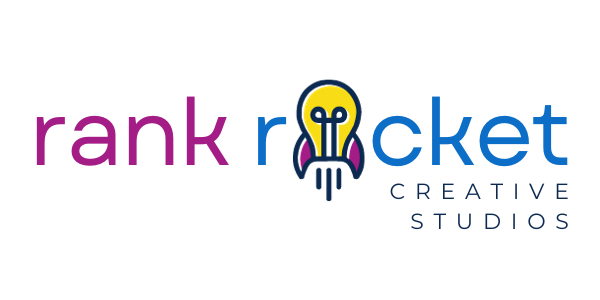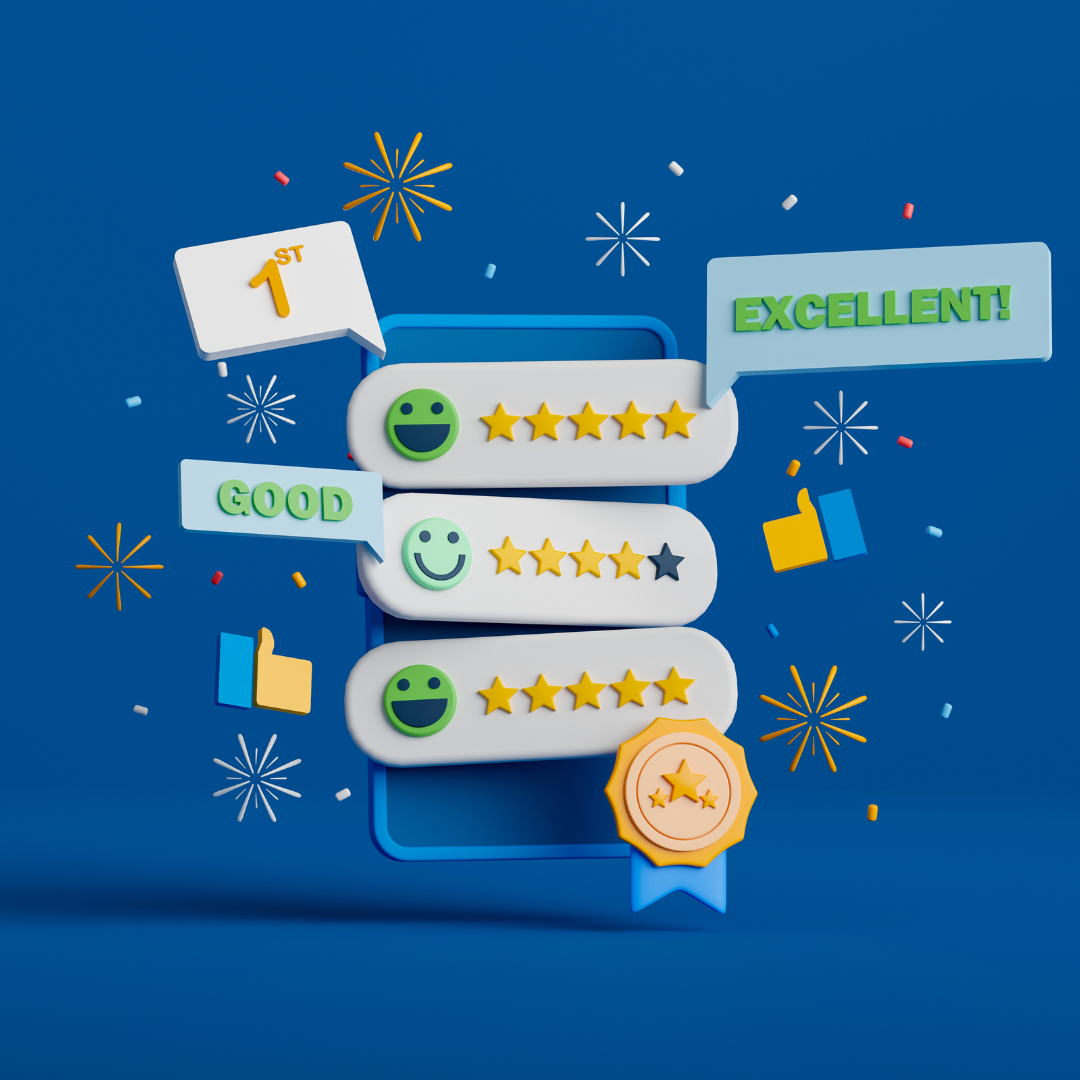The Benefits of Social Media Management for Small Businesses
Social media has transformed from a simple way to connect into a powerful tool for businesses, no matter how big or small. For small businesses, in particular, it's an incredible opportunity to tap into the vast potential of social media for expanding your reach and strengthening your brand.
So, let's dive into the world of social media management and see how it can benefit your business. But it's not just about the benefits; we'll also explore the practical tools and tips.
Increased Brand Visibility
Small businesses often struggle with gaining visibility in the crowded marketplace. However, with effective social media management, they can shine in the digital spotlight. By utilizing social media platforms, businesses can not only showcase their products and services but also extend their reach to a global audience. Whether you're a local bakery or an e-commerce startup, social media allows you to reach potential customers far and wide.
Improved Customer Engagement
Customer engagement is the lifeblood of any business. Social media facilitates two-way communication, allowing small businesses to build stronger relationships with their customers. It's a place where you can promptly address inquiries, provide excellent customer support, and most importantly, showcase the human side of your brand. By interacting with your audience, you can create a loyal customer base that genuinely cares about your business.
Targeted Marketing and Advertising
Targeted marketing on social media is a game-changer for small businesses. Instead of casting a wide net, you can pinpoint your ideal customers with precision. Here's how it works:
Get to Know Your Audience: Social media platforms collect data on users' interests, location, and more. You can use this info to define your target audience accurately.
Tailor Your Message: Once you know your audience, you can create content that speaks directly to their needs and interests. This personal touch makes your marketing more effective.
Cost-Effective Ads: Unlike traditional advertising, social media ads are budget-friendly. You only pay to reach the people you care about, making it cost-effective.
Adjust in Real Time: You can track how your ads are doing and tweak them as needed. If something's not working, you can make changes on the spot for better results.
Bring Back Interested Customers: If someone showed interest in your business but didn't buy, you can target them with special ads to rekindle their interest.
Measure What Works: Social media gives you data on how your ads perform. You can see what's working and what's not, helping you make smarter advertising choices.
Connect with the Right People: Social media lets you connect with the customers who matter most. This means better chances of turning interest into sales and building long-term loyalty.
Reputation Management
Reputation Management is a critical aspect of business in the digital age, and it goes hand in hand with effective social media management. Your online reputation, often referred to as your digital footprint, can have a significant impact on your brand's success. Here's what you need to know about the importance of reputation management and how social media plays a vital role in this process:
Monitoring Brand Sentiment: Social media platforms provide a direct and real-time window into how your audience perceives your brand. By actively monitoring social media channels, you can gain insights into the sentiment surrounding your products or services. Tools like sentiment analysis can help you track whether mentions and conversations about your brand are positive, negative, or neutral. This information is invaluable in understanding how your audience views your business.
Responding to Negative Feedback: In the age of social media, negative feedback can spread rapidly and influence potential customers. One of the key benefits of social media management is the ability to respond quickly and professionally to negative comments or reviews. Addressing concerns in a public and transparent manner can help defuse potential crises and show your commitment to customer satisfaction. It also provides an opportunity to turn dissatisfied customers into loyal advocates by resolving their issues.
Fostering Positive Online Reviews: Encouraging satisfied customers to leave positive reviews on social media or review sites is an effective strategy for reputation management. Social media management allows you to create campaigns or initiatives that promote positive customer experiences and encourage users to share their feedback. Positive reviews not only boost your online reputation but also play a significant role in attracting new customers.
Building Credibility and Trust: A strong online reputation enhances your brand's credibility and trustworthiness. When potential customers research your business online and find a consistent pattern of positive sentiment and interactions, they are more likely to trust your brand. This trust can be a deciding factor in their purchasing decisions.
Customer Retention and Loyalty: A positive online reputation is not just about attracting new customers but also retaining existing ones. Satisfied customers are more likely to stay loyal to your brand and continue doing business with you. Social media management can help you engage with your existing customers, address their concerns, and foster a sense of community and loyalty around your brand.
Competitive Advantage: In a competitive market, a strong online reputation can give you an edge. When potential customers compare your brand to competitors, positive sentiment, reviews, and interactions on social media can tip the scale in your favor.
Long-Term Brand Success: Reputation management is not a one-time effort; it's an ongoing process. Social media management enables you to maintain and improve your brand's online reputation over time. By consistently monitoring and responding to feedback, fostering positive reviews, and demonstrating a commitment to customer satisfaction, you can build a resilient and positive online image that can weather occasional setbacks.
Reputation management is an integral part of any business strategy, and social media management is a powerful tool in shaping and maintaining a positive online reputation. By actively engaging with your audience, addressing feedback, and fostering a strong online presence, you can build trust, attract and retain customers, and ensure long-term success for your brand in the digital age.
Cost-Effective and ROI
Cost-efficiency and Return on Investment (ROI) are essential considerations for small businesses looking to make the most of their marketing efforts. Social media marketing offers a distinct advantage in this regard, as it allows businesses to achieve their goals while keeping a close eye on their expenses and measuring the outcomes effectively.
Here's a more in-depth look at cost-efficiency and ROI in the context of social media marketing for small businesses:
Cost-Effective Marketing: Traditional advertising methods, such as television or print ads, can be prohibitively expensive for small businesses with limited budgets. In contrast, social media marketing is relatively affordable. Setting up and maintaining social media profiles is often free, and even paid advertising on platforms like Facebook, Instagram, or Twitter can be tailored to suit smaller budgets. This flexibility allows small businesses to reach their target audience without breaking the bank.
Precise Targeting: Social media platforms provide powerful tools for demographic and psychographic targeting. Small businesses can define their ideal customer and ensure that their marketing efforts are seen by the right people. This precision is not only cost-effective but also enhances the chances of generating high-quality leads and conversions.
Measurable Results: One of the significant advantages of social media marketing is the ability to measure results with precision. With analytics tools provided by social media platforms, small businesses can track various key performance indicators (KPIs) such as reach, engagement, clicks, conversions, and more. This data helps in assessing the effectiveness of marketing campaigns and making data-driven decisions to optimize future efforts.
ROI Tracking: Calculating ROI is critical for any marketing strategy. In social media marketing, it's easier to track the investment and returns. You can precisely measure the amount spent on advertising and compare it to the revenue generated as a result of your campaigns. This allows small businesses to make informed decisions about where to allocate their marketing budget for the best results.
Scalability within Budget Constraints: Social media marketing offers a level of scalability that is often not achievable with traditional marketing channels. Small businesses can start with a minimal budget, test different strategies, and gradually increase their investment as they see positive results. This means you can adapt and grow your marketing efforts as your business scales, without having to commit to large upfront costs.
Engagement and Interaction: Social media enables direct interaction with your audience. Small businesses can engage with customers, respond to queries, and build relationships, all of which can positively impact customer loyalty and, in turn, ROI. These interactions are often cost-effective ways to build brand trust and enhance customer satisfaction.
In summary, social media marketing offers a cost-effective and ROI-driven approach for small businesses. With precise targeting, measurable results, and the ability to scale within budget constraints, it empowers small businesses to maximize their marketing efforts. By consistently monitoring and optimizing their social media strategies, small businesses can achieve a strong return on investment and build a solid online presence.
Content Strategy and Creation
Content strategy and creation play a pivotal role in the success of small businesses on social media. Crafting compelling content that resonates with your audience and aligns with your brand is an art form. Here's an in-depth look at the importance of content strategy and creation for small businesses in the social media landscape:
Consistency and Brand Voice: Establishing a consistent brand voice is essential. Your audience should immediately recognize your content as uniquely yours. This voice reflects your brand's personality, values, and mission. When your content consistently conveys this, it builds trust and a sense of familiarity with your audience.
Visual and Multimedia Appeal: In the age of social media, visuals and multimedia content are king. Eye-catching images, videos, infographics, and interactive content capture attention more effectively than text alone. Small businesses can use these visual elements to tell their story, showcase their products, and make their content more shareable.
Educational and Informative Content: Sharing knowledge and providing value through your content is a powerful strategy. Educate your audience about your industry, offer how-to guides, share tips and insights, and address common pain points. By positioning your business as a source of valuable information, you can establish authority in your niche and build trust with your audience.
Storytelling: Effective storytelling is a potent tool for small businesses. Share stories about your brand's journey, successes, challenges, and the people behind it. Storytelling humanizes your business and creates a deeper emotional connection with your audience.
User-Generated Content: Encourage your customers to create content related to your products or services. User-generated content not only provides social proof but also strengthens the sense of community around your brand. Sharing this content showcases your appreciation for your customers and their experiences.
Engagement and Interactivity: Content isn't just about broadcasting messages; it's also about sparking conversations. Engage your audience with questions, polls, contests, and discussions. Encourage them to share their thoughts and experiences. The more interactive your content, the more engaged your audience will be.
SEO and Keywords: Incorporating search engine optimization (SEO) into your content strategy is essential. Use relevant keywords in your posts to improve your visibility in search results. This helps potential customers find your content and, ultimately, your business.
Consistency and Planning: A well-structured content calendar ensures that you consistently deliver content to your audience. Planning your content in advance allows you to align it with key events, promotions, and trends, keeping your brand relevant and timely.
Measuring and Adjusting: It's crucial to track the performance of your content. Social media platforms offer analytics tools to measure reach, engagement, and conversions. Use these insights to adjust your content strategy, emphasizing what works and optimizing underperforming elements.
Showcasing Your Unique Value: Small businesses have the advantage of being unique. Highlight what sets your brand apart, whether it's your exceptional customer service, locally sourced products, or a commitment to sustainability. Your content should reflect these unique selling points to attract and resonate with your target audience.
A well-thought-out content strategy and creation process are essential for small businesses to thrive on social media. Consistency in brand voice, use of visuals and multimedia, educational content, storytelling, and interactivity are all key components. By delivering high-quality content that speaks to your audience's needs and interests, you can foster engagement, loyalty, and business growth in the competitive landscape of social media.
Social Media Tools
Let's discuss the essential tools that can streamline your social media management tasks. These tools are your reliable partners, simplifying operations and offering valuable insights to make a real impact on your small business in the ever-changing digital landscape. They assist you in content scheduling and publication, monitor campaign performance, and help you fine-tune your social media strategy. Here's an overview of some platforms and how they can empower your business in the realm of social media.
Social Media Management Tools and Platforms:
Having the right tools at your disposal can be a game-changer. Here are some popular social media management tools to help take your small business to the next level:
Hootsuite: Hootsuite is a versatile tool that enables you to schedule and post content across various social platforms. It also provides robust analytics and reporting, allowing you to monitor the effectiveness of your campaigns. Hootsuite
Buffer: Buffer is well-known for its user-friendly interface and is an excellent choice for small businesses. It streamlines content scheduling and offers in-depth analytics to refine your social media strategy. Buffer
Sprout Social: For businesses seeking an all-in-one solution, Sprout Social is an ideal choice. It covers social publishing, engagement, and analytics, serving as a comprehensive hub for social media management. Sprout Social
Later: Later is a top pick for businesses focused on visual content. It specializes in scheduling and managing Instagram posts, featuring a visually oriented calendar for content planning. Later
Canva: While not a traditional social media management tool, Canva is indispensable for creating captivating graphics and visuals to enhance your social media content. Canva
These tools provide you with the means to streamline your social media efforts, save time, and achieve better results. With the right tools at your disposal, you can navigate the dynamic world of social media with confidence and elevate your small business to new heights.
In-House vs. Outsourced Social Media Management
Choosing between in-house and outsourced social media management presents small businesses with a crucial decision. Each option has its own advantages and drawbacks, and the best choice depends on your business's specific needs and resources.
In-House Management:
Pros:
- Complete control: You maintain direct control over your social media strategy and content.
- Immediate response: Quick reactions to real-time events and audience engagement are possible.
- In-depth brand knowledge: Your in-house team possesses comprehensive knowledge of your brand, ensuring a consistent brand voice.
Cons:
- Time-consuming: Social media management demands significant time, potentially diverting your focus from essential business tasks.
- Skill requirements: Training your team or hiring experienced social media experts may be necessary.
- Limited expertise: Your in-house team might lack the depth of experience found in professional social media managers.
Outsourced Management:
Pros:
- Expertise: Professional social media managers bring extensive experience and knowledge to the table.
- Timesaving: Outsourcing allows you to concentrate on core business activities.
- Scalability: Agencies can adjust their efforts to align with your business's growth and changing requirements.
Cons:
- Less direct control: You give up some day-to-day control of your social media presence.
- Costs: Hiring a social media agency involves fees, but it can be more cost-effective than hiring and training in-house staff.
The decision between in-house and outsourced social media management hinges on your business's objectives, budget, and available resources. Carefully evaluate the pros and cons of each approach to determine the best fit for your small business. Whether you choose in-house or outsourced management, remember that utilizing social media management tools can significantly enhance your efforts and streamline your social media strategy.
Maintaining a strong online presence is paramount for small businesses. Effective social media management offers benefits like increased brand visibility, heightened customer engagement, and precise marketing. It allows you to manage your reputation, remain cost-effective, and even compete successfully against larger rivals. By implementing the right content strategy and tools, you can unlock your small business's full potential on social media.
Are you ready to elevate your small business's online presence? Partnering with Rank Rocket means adding dedicated, highly focused team members committed to your business's growth. This leaves you with more time to concentrate on your core business operations. Contact us today to take your business to the next level while we handle the digital front.





